Discovering Novels Like Game of Thrones: A Reader's Guide
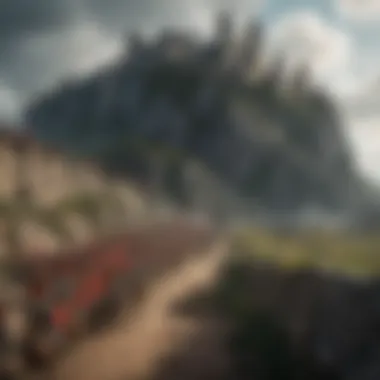
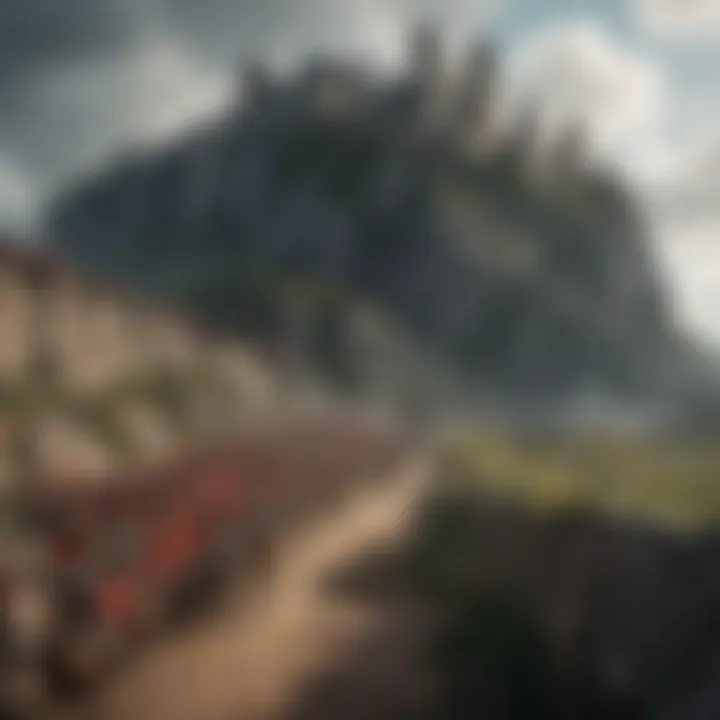
Intro
In the labyrinth of literary fiction, few series have whisked readers away into a tapestry as majestic and complex as Game of Thrones. The realm of Westeros, with its backstabbing alliances and morally gray characters, presents a unique narrative experience that has captivated millions. However, as any ardent reader would know, there is a vast landscape of literature that mirrors the same depths of character development, political intrigue, and layers of power struggles. This article embarks on a journey beyond the Wall and out of King's Landing, exploring novels that echo the intricate storytelling found in Game of Thrones.
Through these pages, readers will discover both series and standalone works, dipping into different genres and times, but all united by the themes that resonate deeply with fans of George R.R. Martin's epic tale. Let’s dive into the heart of this narrative exploration, where the characters are as rich and varied as the worlds they inhabit.
Character Dissections
Key Characters in Game of Thrones
Understanding the characters of Game of Thrones is akin to peeling back layers of an onion—every layer reveals nuances, motivations, and sometimes, even revelations that challenge our perspectives. Characters like Tyrion Lannister exemplify the struggle against societal constraints while wielding their intellect as a sword. Contrast this with the brute force of Khal Drogo or the ambition of Cersei Lannister, and you get a vivid portrayal of the complexities that drive human action.
Character Development Throughout the Series
As the series progresses, almost every character undergoes substantial evolution. Consider Jaime Lannister’s extraordinary transformation from the arrogant Knight of the Kingsguard to a more reflective and conflicted individual. This journey encapsulates the moral ambiguities that pervade the narrative.
"The path of a character is often anything but linear; it's the curves and bends that forge their very essence."
Impact on the Overarching Storyline
Each character's evolution impacts the grand narrative significantly. Daenerys Targaryen, with her quest for the Iron Throne, reveals the duality of power and its consequences. Her journey casts ripples across the Seven Kingdoms, affecting allies and enemies alike. Understanding these connections is crucial for any reader trying to unravel the complex web that Martin has crafted.
Themes and Similar Books
For those captivated by the character-driven nature of Game of Thrones, numerous literary works parallel its complexities. From the political machinations in The First Law series by Joe Abercrombie to the rich lore in Patrick Rothfuss's The Name of the Wind, these recommendations promise to deliver similar thrills.
Some Notable Mentions:
- The Malazan Book of the Fallen by Steven Erikson: Rich in lore and a large ensemble cast.
- A Song of Ice and Fire (the source series) continues to develop stories that inspired the show.
- The Broken Earth trilogy by N.K. Jemisin: Multi-layered character arcs amidst societal collapse.
As readers continue their exploration, they’ll unearth various narratives that echo the dark and twisted histories of their favorite characters from Westeros. Through the prism of these recommendations, we can appreciate not only what makes Game of Thrones an unforgettable saga but also the broader literary worlds it mirrors.
Prolusion to Epic Fantasy
Epic fantasy stands as a monumental pillar in literature, offering readers expansive worlds filled with rich histories, intricate character arcs, and intricate plots. The significance of exploring this genre lies in its ability to transport fans into realms where the boundaries of reality bend and twist, allowing for a full escape from the mundane. For fans of 'Game of Thrones,' diving into the swirling depths of epic fantasy can unveil narratives that not only resonate with familiar elements but also broaden one's horizons to new realms of imaginative storytelling.
Defining the Genre
Epic fantasy, as a genre, isn’t just about dragons and wizards—though those are certainly staples in many tales. At its core, it often includes:
- A Well-Built Setting: These stories typically unfold in vast worlds, each with its own unique geography, politics, and cultures. The depth of the world can immerse readers completely.
- Multiple Characters: Unlike other narratives, epic fantasy often features a large cast. Each character, no matter how minor they may seem, adds to the tapestry of the story, contributing to the overarching narrative with their motivations and arcs.
- Themes of Good vs. Evil: This perennial conflict is explored in multifaceted ways, often leaving moral uncertainty in its wake. Characters might not fit neatly into categories, making the story more compelling.
Understanding these key elements sheds light on why epic fantasy captures readers’ imaginations so profoundly.
The Appeal of Complex Narratives
Complex narratives have a magnetic pull—like moths to a flame, readers are drawn to intricate and layered storytelling. The beauty of epic fantasy lies in its ability to weave intricate plots and subplots that invite readers to lose themselves in unpredictability and surprise. Here are a few reasons why complexity resonates:
- Engagement: Stories with layers make readers think, compelling them to consider characters' choices and the motivations behind their actions.
- Emotion: Complex character arcs often evoke a broader range of emotional responses. As readers invest in the characters' journeys, they experience triumph and despair vicariously.
- Unpredictability: Just when you think you’ve figured out the storyline, a twist can flip everything on its head. This keeps readers on the edge of their seats, eagerly turning pages to see what happens next.
"A great story is like a labyrinth—each turn reveals new shapes and shadows, keeping you guessing until you find your way out."
In the epic fantasy genre, the combined effects of a rich world and complex characters create a narrative fabric that offers endless possibilities for exploration. Familiarity with these elements not only enhances the reading experience but also guides those seeking books similar to 'Game of Thrones.' With such an expansive genre at their fingertips, readers are bound to find tales that capture the same essence of intrigue, depth, and moral complexity.
Thematic Connections


Exploring the thematic connections in literature akin to Game of Thrones opens the door to a deeper understanding of the intricate world of epic fantasy. This exploration is vital because it highlights not just the surface-level storytelling, but also the rich tapestry of themes that resonate through the narratives. Themes of power dynamics, moral ambiguity, and the brutal reality of warfare do not merely entertain; they provoke thought and invite readers to reflect on the complexities of human nature and society.
Power Dynamics and Political Intrigue
In the realm of epic fantasy, power dynamics serve as the backbone of storytelling. The intricate layers of political maneuvering and personal ambition create an engaging narrative that reflects the real-world complexities of governance and betrayal.
Game of Thrones captures this through character relationships that ebb and flow with loyalty and deceit. Similarly, in The Malazan Book of the Fallen, the interplay between different factions illustrates how alliances are formed and broken in the pursuit of power. Readers are left contemplating the moral compass of each character as they navigate treacherous waters of political ambition.
Moreover, The Wheel of Time series introduces the struggle for leadership and the daunting burden that comes with it. The characters grapple not only with the consequences of their choices but also with the manipulation that underlies their relationships. It paints a picture of how power can corrupt even the noblest intentions.
Moral Ambiguity in Characters
Moral ambiguity is a hallmark of compelling storytelling. It reflects the real-world shades of grey in humanity, offering a richer character development that resonates with readers. In Game of Thrones, very few characters fall neatly into the categories of good or evil; rather, their motivations drive their actions, leading to decisions that can be both heroic and reprehensible.
Consider Joe Abercrombie’s The First Law Trilogy, where characters embody these moral complexities. Readers see ruthless warriors alongside cynical philosophers, creating a narrative tapestry that challenges conventional notions of heroism. This depth invites readers to grapple with questions about morality and ethics within the context of their own lives.
Overall, the notion of ambivalent morality shifts focus away from clear-cut heroes, fostering a relationship between the reader and the characters that is textured and fraught with tension. It’s not just about rooting for someone; it’s about understanding their choices and the influences that guide them.
Epic Battles and Warfare
The depiction of warfare in epic tales is not merely for dramatic effect; it serves as a canvas to explore broader themes such as honor, sacrifice, and the human cost of conflict. In Game of Thrones, battles are brutal, yet they are not just spectacles; they bring fundamental changes to the world and the characters within it.
In The Last Kingdom series by Bernard Cornwell, the depiction of battles is steeped in historical accuracy, providing readers with insight into the bloodshed of the past. The visceral details of conflict drive home the tumultuous times when loyalty was often overshadowed by survival instincts. The stakes are high, and every decision could tip the scales.
For readers who enjoy intricate battle scenes, this level of detail allows for a connection to the broader narrative arc. Whether it’s the strategic maneuvers in The Broken Earth Trilogy or the classic tales wrapped in splendor and tragedy like The Poppy War Trilogy, every battle carries weight—emphasizing that victory often comes at a heavy price.
"In war, there are no unwounded soldiers."
— José Narosky
Influential Series for Avid Readers
In the ever-expanding universe of epic fantasy, identifying works that share the intricate storytelling and rich character development akin to Game of Thrones isn't just a casual recommendation—it's a quest of its own. Delving into influential series offers avid readers a treasure trove of narratives steeped in political intrigue, deep moral conundrums, and intricate worlds that echo the vibrance of George R.R. Martin's creation. These series provide not only entertainment but also an opportunity to explore themes that resonate deeply, including the nature of power, honor, betrayal, and survival.
The Malazan Book of the Fallen by Steven Erikson
The Malazan Book of the Fallen, crafted by Steven Erikson, stands as a monumental achievement in the fantasy genre. Often praised for its bold complexity and extensive world-building, it takes readers through a multi-layered narrative filled with a vast array of characters and intertwining plots. It’s a bit of a beast, with ten main novels that weave through history, magic, and the impact of war on societies. Erikson's writing is dense and poetic, which might require a reader to engage fully rather than skim through it. Yet, for those who savor the challenge, the payoffs are immense. The themes range from the nature of justice to the fickle hand of fate, offering much to ponder and analyze.
The Wheel of Time by Robert Jordan
Robert Jordan’s The Wheel of Time series is another key influence, echoing the comprehensive scope and epic storytelling that fans of Game of Thrones may crave. Spanning fourteen books, this series intricately depicts a world where magic and politics intertwine, building a rich tapestry of cultures and histories. The protagonist, Rand al'Thor, embodies the struggle against destiny and the burden of leadership, thrumming with a sense of moral ambiguity as he navigates the complexities of power. The intricate details in world-building will remind readers of Martin's elaborate kingdoms, while the diverse character arcs explore themes of loyalty and sacrifice.
The First Law Trilogy by Joe Abercrombie
Joe Abercrombie’s The First Law Trilogy is well-acclaimed for its gritty realism and dark humor, combining action with deep character exploration. Abercrombie's characters are not your traditional heroes; instead, they grapple with personal demons, showcasing flaws that resonate with the moral intricacies found in Game of Thrones. The trilogy explores political machinations and the consequences of brutal choices. Abercrombie creates a world full of grit and pathos, blurring the lines between right and wrong, inviting readers to reflect on the cost of ambition and the true nature of heroism.
A Song of Ice and Fire Companion Works
Finally, the companion works to A Song of Ice and Fire, including Fire & Blood and The World of Ice and Fire, furnish fans with more context and depth into the already rich lore established by Martin. These texts explore the historical underpinnings and the intricate world-building that have contributed to the saga's allure. Ideal for fans who want to immerse themselves beyond the primary series, these works reveal the extensive backdrop of the Targaryens and other key factions. They provide a granular understanding of events that shape the main narrative, enriching the reader's experience.
Standalone Novels Worth Exploring
In the realm of literature, standalone novels possess a unique charm. While series can delve deeply into their worlds, standalone books must encapsulate their entire narratives in a single volume. This creates a different kind of tension and resolution, one that often rivals that of sprawling epics like Game of Thrones. Readers are drawn to these works because they encapsulate complex themes within a concise scope. For those who seek the intensity of political machination, moral struggle, and rich character development without the long-term commitment of a series, standalone novels can offer an impactful reading experience.
The Curse of Chalion by Lois McMaster Bujold
The Curse of Chalion presents a profound narrative centered around Cazaril, a man scarred by war and betrayal. His journey begins when he returns home, where he finds himself embroiled in political intrigue and divine machinations that rival the best plots in epic fantasy. Bujold constructs a world where the interplay between the divine and the mundane creates a dense tapestry of action and consequence. The themes of redemption and the struggle against fate echo the moral ambiguities present in Game of Thrones.
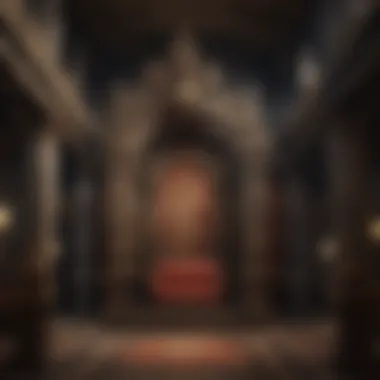
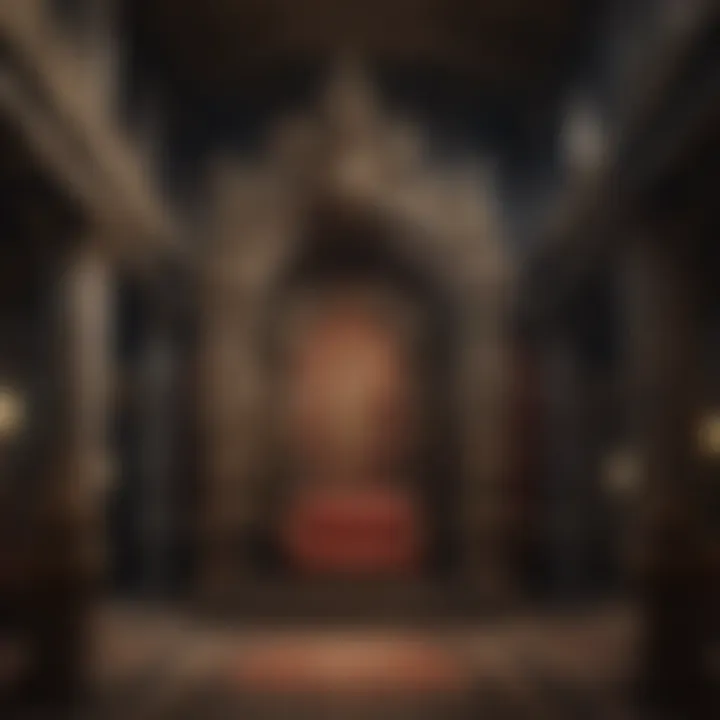
Each character is crafted with depth—Cazaril, alongside demigods and nobility, face choices that resonate deeply with the reader. The book captures the essence of personal responsibility amidst larger political chaos. The richly layered story unfolds as Cazaril navigates a court rife with treachery, resembling the intricate power maneuvers seen in Westeros. This novel stands out not just for its plot but for the emotional weight it carries, giving us a protagonist who must reconcile his past with the choices that shape his future.
The Name of the Wind by Patrick Rothfuss
In The Name of the Wind, Rothfuss takes readers on an autobiographical voyage through the life of Kvothe, a gifted young man with a tragic past. The narrative encapsulates themes of storytelling, knowledge, and the pursuit of truth in a world that can be as brutal as it is beautiful. Kvothe's journey from his early years among a traveling troupe to his time in a prestigious university offers a captivating exploration of the struggle for identity and the thirst for power—something that resonates with Game of Thrones fans.
Rothfuss's prose is lyrical, weaving a rich fabric that captures the essence of fantasy while avoiding the traps of over-explanation. Kvothe himself is a complex figure, embodying both heroic and selfish traits in his quest for understanding. The novel's depth lies in its dedication to the power of story itself, which mirrors the intricate web of narratives that Game of Thrones so skillfully crafts.
"You've got to be a little careful in your alliances, a bit wary of the line between friend and foe, especially in a world like this."
City of Stairs by Robert Jackson Bennett
In City of Stairs, Bennett melds mystery and fantasy in an urban setting that feels both familiar and enigmatically foreign. The story unfolds in the city of Bulikov, once governed by gods, now shaped by their absence. This tall tale tells of murder, political intrigue, and the remnants of divine powers clashing with human ambition. The author's deft handling of themes such as imperialism and the echoes of history creates an atmosphere where every character has a significant role to play in this living, breathing city.
The protagonist, Shara Thivani, embodies the complexity of navigating a socio-political landscape filled with secrets. Her investigations uncover layers of betrayal that remind one of the constant upheavals seen within the courts of Westeros. As readers dive into the mysteries of Bulikov, they are reminded of the hidden motives and backroom dealings that perpetuate struggles for power—a thread that runs consistent through Game of Thrones and beyond. Bennett’s narrative prioritizes character development and the moral dilemmas faced by those at the intersection of history and current events.
Fantasy with Historical Inspirations
Exploring fantasy literature often leads to a rich tapestry woven with threads of history. This section seeks to illuminate the intersection of historical events and fantastical storytelling, demonstrating how they meld into immersive narratives. For fans of Game of Thrones, which is deeply rooted in the tumultuous history of the War of the Roses, works that reflect similar historical inspirations can provide an even grander backdrop to their enjoyment of the genre.
Many readers appreciate the layers of authenticity that come with historical context. These elements often enhance the complexity of characters and plot lines, creating a sense of realism that resonates even in worlds filled with dragons and magic. By delving into stories dynamically linked to historical events, readers can explore not only the narrative but also how history influences the course of human behavior and societal organization.
Some of the benefits of engaging with fantasy grounded in historical roots include:
- Depth of Understanding: Such novels often require readers to reflect on historical phenomena—like the rise and fall of empires, unique cultural practices, or significant battles—enriching their overall literary experience.
- Complex Characterization: Characters born from historical inspiration frequently embody deeper moral dilemmas and political motivations, reflecting the real struggles of leadership, loyalty, and betrayal.
- Engaging Worldbuilding: History can serve as a solid foundation for worldbuilding, providing a framework that feels both familiar and intriguing. The nuances of real historical periods can infuse fantasy realms with a greater sense of legitimacy.
Ultimately, engaging with fantasy that draws from historical inspirations opens a window through which readers can experience a multifaceted view of not only fictional worlds but also the real human experiences behind them.
The Accursed Kings by Maurice Druon
The Accursed Kings series is often heralded as a precursor to Game of Thrones due to its political intrigue and ruthless power plays. Set in France during the 14th century, the narrative follows the tumultuous reign of the Capetian dynasty and highlights the treachery and betrayal that accompany the quest for power. Druon’s tale is a gritty recounting of real historical events, littered with characters that embody the essence of ambition and complex moral stances.
What stands out most about the Accursed Kings is how it draws from actual figures and events, skillfully weaving them into an engaging storyline. The author’s meticulous attention to detail creates a vivid portrayal of medieval France’s social and political landscapes. The connection to Game of Thrones lies in the intricate web of familial conflict and the ceaseless appetite for dominance—traits that resonate deeply with well-known characters from Westeros.
The Last Kingdom Series by Bernard Cornwell
Bernard Cornwell’s The Last Kingdom series immerses readers in the conflict and chaos of 9th and 10th century England, a time when the land was divided among various factions vying for control. The narrative follows Uhtred of Bebbanburg, a nobleman raised by Vikings, grappling with the pull of loyalty to his Saxon heritage while struggling against the palpable threat of Norse invaders.
Cornwell’s storytelling is rich in detail and momentum, making it a captivating read for fans of epic struggles within a historical context. The series captures the essence of divided loyalties and the clash of civilizations—similar to the political dynamics present in Game of Thrones. Cornwell does not shy away from portraying the brutal realities of war, betrayal, and survival, thus providing a profound exploration of human nature and conflict.
Within these pages, fans can find compelling narratives that echo the familiar themes of power, ambition, and moral complexity while presenting a carefully researched historical setting. The juxtaposition of history and fantasy serves to enhance the reader's understanding, fueling a desire to learn about the actual events that inspired such sweeping, dramatic tales.
Modern Fantasy Epics
Modern fantasy epics hold a significant place in contemporary literature, especially for fans of tales that echo the monumental intricacies found in Game of Thrones. These narratives explore rich worlds, engaging characters, and complex themes that resonate with readers who appreciate politically charged plots and morally nuanced storytelling.
One of the key elements that defines modern fantasy epics is their ability to weave together multiple perspectives, allowing readers to dive into the minds of diverse characters. This not only enhances the depth of the narrative but also invites readers to explore the varied motivations and ethical dilemmas faced by these individuals. Furthermore, the world-building is often meticulous, crafting societies with their unique cultures, languages, and histories, reminiscent of how George R.R. Martin constructed his own vast universe.
The benefits of immersing oneself in modern fantasy epics extend beyond mere entertainment. These books often tackle pressing issues such as gender roles, power struggles, and the intricacies of war and peace. For fans of Game of Thrones, the political maneuvering and the fallout from multiple relationships echo throughout these stories, creating a familiar semblance that feels both fresh and enthralling.
Considerations about modern fantasy epics also lie in their commitment to addressing current social dynamics. Authors carve out narratives that reflect real-world issues, making the stories not just applicable in fantastical settings but also relevant in today’s society. In a nutshell, modern fantasy epics offer a potent blend of imaginative storytelling and sharp social commentary that captivates their audience.
The Broken Earth Trilogy by N.K. Jemisin
The Broken Earth Trilogy, consisting of The Fifth Season, The Obelisk Gate, and The Stone Sky, presents a narrative that challenges conventional norms within the genre. Jemisin's trilogy explores themes of oppression and resilience, set against a world constantly on the brink of catastrophic upheaval. Unlike the familiar medievalist backdrops in many epics, Jemisin's creation is a complex, earth-shattering realm that delves into the marginalization of individuals who wield powerful abilities.
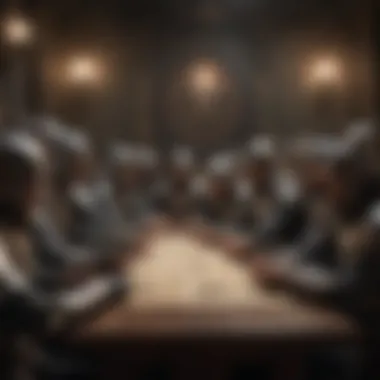

Jemisin's world-building is unparalleled. She constructs a society that not only reflects a deeply caste system but also highlights the struggles of an oppressed population. The protagonist’s journey reveals the intersectionality of race, gender, and power - topics that are relevant and often contentious today. Readers find themselves in a whirlwind of emotions as Jemisin artfully intertwines personal experiences with broader societal issues, making it impossible to ignore the relevancy of these themes in the real world.
The Poppy War Trilogy by R.F. Kuang
R.F. Kuang's The Poppy War Trilogy is yet another example of modern fantasy that draws heavily from historical context while also tackling heavy themes like genocide and addiction. Starting with The Poppy War, followed by The Dragon Republic and The Burning God, this series merges fantasy with the Chinese historical backdrop, providing readers with a lens into the impacts of war and its lingering effects.
The trilogy does not shy away from the complexities of warfare, portraying the moral quandaries faced by its characters amidst the chaos. Kuang's protagonist, Rin, is an embodiment of the struggles of the marginalized, as well as a representation of the fight against overwhelming odds. Her journey from a war orphan to a powerful military leader beckons readers to question not only the cost of war but also the price of power.
Both The Broken Earth Trilogy and The Poppy War Trilogy exemplify the innovative narrative style found in modern fantasy epics, showcasing the genre's evolution from traditional storytelling to more nuanced and socially aware narratives. For avid readers and fans seeking the kind of depth and complexity found in Game of Thrones, these trilogies offer rewarding alternatives that are sure to resonate on multiple levels.
Spin-off Series and Adaptations
In the realm of epic fantasy, spin-off series and adaptations present a unique opportunity to expand on existing narratives. These literary works allow fans to dive deeper into the worlds they cherish while introducing new characters and plotlines that both complement and challenge the original material. The allure lies not just in revisiting familiar settings, but in the chance to explore different angles of political intrigue and personal drama that make stories like Game of Thrones so compelling.
Spin-off series, for instance, can provide the backstory to beloved characters or explore events that shaped the original narrative. They refresh a well-established universe, offering an opportunity for character development that the original series might not have captured fully. By doing so, they invite readers to question, reinterpret, and appreciate the layers beneath the surface of the main storyline. Furthermore, adaptations, whether through television or film, can visually enrich the storytelling experience, capturing the essence of the textual narrative while providing new insights through a different medium.
"The power of adaptations lies in their ability to transform the imagination into visual reality, allowing viewers a glimpse into the fantastical worlds they've only read about."
Legends of the First Empire by Michael J. Sullivan
Legends of the First Empire serves as a noteworthy exploration into the intricacies of myth and the origins of a grand fantasy world. Michael J. Sullivan's writing stands out for its rich character development and immersive storytelling, similar to what Game of Thrones fans have come to appreciate. This series, set in a world that pre-dates his Riyria Revelations series, intricately weaves together themes of power, betrayal, and epic journeys.
The narrative unfolds around a varied cast, each with their own motivations, grievances, and allegiances. Sullivan takes the time to build a tapestry of complex relationships, allowing the reader to feel the weight of the choices made by these characters in the same way one might reflect on the moral dilemmas faced by key players in Westeros. This depth makes it a recommended journey for those yearning for the same sense of tangled loyalties and historical depth found in Game of Thrones.
The Witcher Series by Andrzej Sapkowski
Andrzej Sapkowski’s The Witcher Series intertwines folklore, magic, and gritty realism, offering a landscape deeply steeped in moral ambiguity—much like the world of Game of Thrones. Through the journey of Geralt of Rivia, the reader is immersed in a universe where the lines between good and evil are often blurred. Sapkowski has a knack for creating morally grey characters, whose actions have far-reaching consequences in their own rights.
Fans of political intrigue will find the political machinations prevalent throughout the series wonderfully engaging. Numerous factions vie for power, and their struggles reflect the complexities of human (and non-human) nature. The compelling world-building, alongside the philosophical questions raised about identity and purpose, creates a magnetic pull that keeps readers turning pages. The blend of action, introspection, and rich lore makes The Witcher not merely a tale of monsters but also a deep exploration of humanity—a quality that resonates strongly with readers who appreciated the intricate dynamics of Game of Thrones.
Culmination: The Broader Literary Landscape
In reflecting upon the intricate, multifaceted realm of literature inspired by Game of Thrones, we begin to recognize the vast tapestry that is both rich and textured in its development of characters and narratives. This conclusion serves not only as a closing remark but as an invitation to further discover the depths of literary landscapes that engage with themes of intrigue, rivalry, and moral complexity. The connections drawn from George R.R. Martin's work resonate not just within the fantasy genre but echo through the annals of storytelling across different genres and cultures.
While Game of Thrones exists as a cornerstone in popular culture, its influence propels readers towards numerous other works that challenge conventional narratives and delve into the darker corners of humanity. This broader literary landscape is filled with novels that meticulously craft tales where characters often find themselves ensnared in moral quandaries or precarious power dynamics. The importance of this landscape is not only its diversity in storytelling but also how it offers readers a chance to navigate through intricate plots while grappling with complex characters who are ever so human, despite being set in fantastical realms.
Key Elements of this Perspective:
- Character Complexity: Similar to Martin's characters, many authors create individuals fraught with flaws and strengths. This depth invites readers to ponder their own judgments of decisions made under pressure.
- Political Intrigue: From modern depictions of political maneuvering to ancient allegories, the persistent struggle for power is likely to captivate and keep readers engaged.
- Thematic Richness: Encounters with themes of loyalty, betrayal, and the cost of ambition blossom across various narratives, drawing parallels to the undercurrents in A Song of Ice and Fire.
- Innovative Storytelling: Many authors break free from traditional storytelling molds, merely reflecting the creative evolution sparked by George R.R. Martin's bold narrative style.
Inviting readers to explore such works opens a doorway to a universe filled with challenges and questions, prompting deeper thought about the nature of humanity itself, all while enjoying the thrill of a well-spun yarn. Engaging with literature that mirrors these themes cultivates a richer understanding of the world around us by allowing readers to see reflections of their own struggles and triumphs.
The Enduring Influence of Game of Thrones
Game of Thrones stands not just as a series of novels or a television phenomenon but as a pivotal work that reshapes the landscape of both fantasy and literary discourse. This influence stretches beyond its immediate popularity and delves into deeper narrative techniques and character developments that other authors now aspire to replicate.
Through its exploration of ambivalent characters and morally grey decisions, the series emphasizes that good and evil are seldom black and white. The consequences faced by characters, who often find themselves flanked by competing interests, serve as cautionary tales that mirror real-life dilemmas. The enduring influence of Martin's masterpiece can be observed across various realms:
- Diverse Character Arcs: Writers are crafting more nuanced characters inspired by the complexities seen in Martin's work. The depth of motivation and consequence flows through modern narratives, making characters relatable yet multifaceted.
- Narrative Structure: The non-linear storytelling approach adopted in Game of Thrones allows for myriad perspectives and interpretations, which many contemporary authors emulate.
- Fans and Community Growth: The inspiring passion of fans fosters communities around literary discourse, discussions on themes, character developments, and alternate endings.
Overall, the shadows cast by Game of Thrones are long and profound, prompting an entire generation of storytellers to construct complex, immersive worlds of their own.
Recommendations for Further Reading
For those captivated by the world of Game of Thrones and eager to dive into more narratives brimming with intrigue and intricate world-building, the following recommendations can provide a sublime reading experience:
- The Name of the Wind by Patrick Rothfuss: A unique blend of storytelling, character development, and enchanting world, offering a compelling narrative following a gifted young man's journey.
- The First Law Trilogy by Joe Abercrombie: Delving into themes of brutality and moral ambiguity, this series presents characters with shades of grey, engaging readers in a world where traditional notions of heroism are often challenged.
- The Malazan Book of the Fallen by Steven Erikson: A vast epic that lures readers into a richly developed world with expansive lore and multifaceted characters,
These works exemplify the complexity and depth that fans of Game of Thrones would find richly satisfying. By entering these literary realms, readers can explore intricate narratives while contemplating the age-old themes of power, loyalty, and sacrifice that permeate throughout literature.
"Literature has the power to transport, to challenge, and to transform, guiding us through worlds that mirror our own realities while inviting us into uncharted territories."
Exploring these books not only satisfies a thirst for similar narratives but also allows readers to participate in the broader conversation regarding modern fantasy and literary innovation. Everybody knows, finding a good 'read' can change your perspective, opening channels to not only engage with stories but with oneself.



